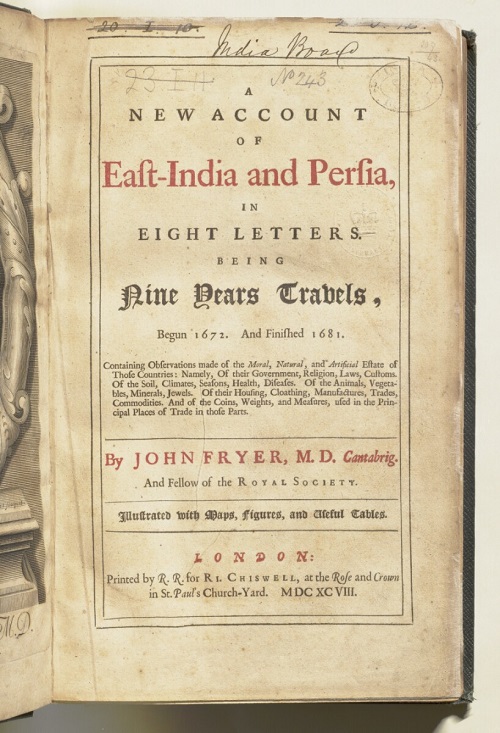Introduction
by Dr Ayesha Mukherjee
- Overview
- Contexts
- Content and approach
- Sources and searchability
- Languages and translation
- Genres
- Apparatus
- Blog
- Selected bibliography
6. Genres
We have attempted to represent as wide a range of discursive modes as possible. Generic variety is a crucial factor determining our selection of material. Famine and dearth are repeatedly themes - not just in Persian chronicle histories, or East India Company correspondence, or English royal proclamations, where one might commonly expect them to appear. They are frequently discussed themes in Persian, English, Braj, and Bengali poetry, English plays performed in times of crisis, traditional Indian oral narratives, popular rhymes and idioms, English sermons, treatises or biographies of itinerant Sufi saints, poetic or prose fiction in both countries. Our aim is to give users a taste of this range and variety.
We have selected material to represent broad generic categories such as “Non-fiction prose”, as well as sub-categories such as “Sermons”, and drawn attention to generic overlaps identified in the course of the project’s research. Persian chronicle histories, for instance, are a mixed genre incorporating chronological narration of events with excerpts of contemporary poetry. Similarly, English sermons that warn about famines and God’s wrath also tell stories like the ones found in travellers’ tales or prose fiction, and overlap with astrological treatises prophesying famine and dearth. Consequently, the generic categories we have created help to classify our selections, but they are also permeable, like the cultural zones of Britain and India. Users of this database can search across genres, themes, keywords, locations, dates, and languages, as well as authors and titles. While the database itself is structured by genre, users can find connections across these categories and question their boundaries.

Title page of John Fryer, A New Account of East-India and Persia, in Eight Letters. London, 1698. British Library, Printed Collections. Accession no. W 3856. In Qatar Digital Library. (CC by 1.0)
Fryer graduated Bachelor of Medicine from Trinity College, Cambridge, in 1671 and was appointed a surgeon at Surat the following year by the East India Company. His account records his travels along the Coromandel coast, to Madras, and to Bombay via Cape Comorin. He narrates in a mixed mode, commenting closely on natural history, politics, theology, and Indian medical practice, especially the effects of climate upon health.